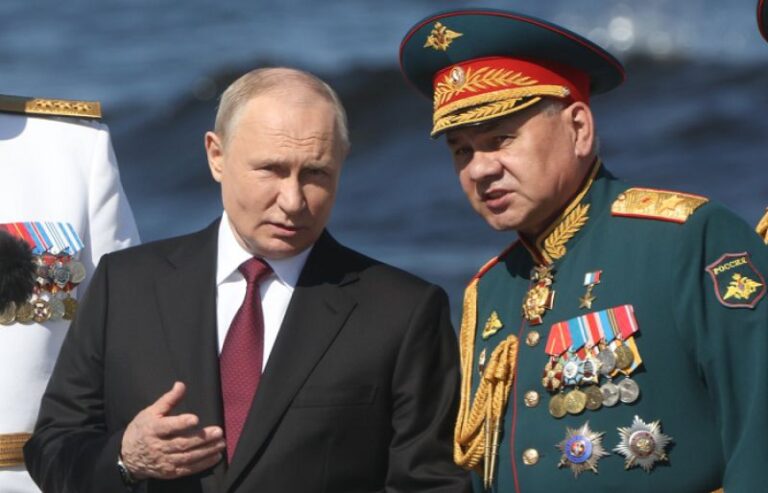The Kremlin has announced that Russian President Vladimir Putin will replace his long-standing ally Sergei Shoigu as defense minister. Shoigu, who has held the position since 2012, will now assume the role of secretary of Russia’s Security Council. The decision comes as a surprise to many, as Shoigu is being replaced by Deputy Prime Minister Andrei Belousov, an economist with limited military experience.
According to the Kremlin, this move is aimed at maintaining innovation within the defense ministry. While reshuffles in Russian politics are rare, this change signifies a significant moment at the top of the political hierarchy.
However, despite the shuffle, Putin remains the ultimate decision-maker. It was his call to initiate the war in Ukraine, and all major decisions are ultimately approved by him.
The appointment of Belousov, an economist, as defense minister may raise eyebrows, but analysts suggest it reflects Putin’s aim to align Russia’s economy more closely with its military endeavors. This decision underscores the shifting priorities within the Kremlin, particularly regarding the substantial financial resources being allocated to the war in Ukraine and the need to enhance efficiency within the armed forces.
Kremlin spokesman Dmitry Peskov emphasized that the role of defense minister requires innovation, likening the current situation to the mid-1980s Soviet Union when a significant portion of GDP was allocated to military spending. This move aims to ensure better integration of military expenditure into Russia’s overall economy, he added.

Rumors about Shoigu’s weakening position had been circulating for months, particularly following the arrest of one of his deputies on corruption charges in April. Additionally, Russia’s campaign in Ukraine, initially expected to be short-lived, has extended into its third year, marked by military setbacks and substantial losses.
While Shoigu retains a powerful position as Security Council secretary, the reshuffle appears to be a demotion for him. The fate of the council’s current head, Nikolai Patrushev, remains uncertain.
Shoigu, known for his close ties with Putin and their shared fishing trips in Siberia, rose to prominence in the 1990s as the head of the emergencies and disaster relief ministry. Despite lacking a military background, he was appointed defense minister, a decision that faced criticism from some military figures.
In 2023, Shoigu became embroiled in a public feud with Wagner mercenary chief Yevgeny Prigozhin over Russia’s conduct of the war. Prigozhin’s accusations against Shoigu went viral, but the Kremlin denied involvement in Prigozhin’s subsequent plane crash.
Belousov, Shoigu’s successor, is viewed as a staunch defender of the state and shares close ties with Putin and the Russian Orthodox Church. His background as an economist and his support for the annexation of Crimea in 2014 highlight his alignment with Putin’s policies.
Putin’s recent inauguration for a fifth term underscores his enduring leadership since 2000, having won the recent election with a significant majority.


